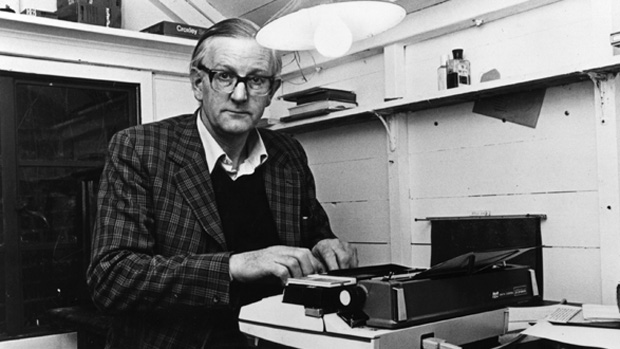Five facts about novelist Tom Sharpe, the man behind Wilt
Best-selling satirist, described as 'PG Wodehouse on acid', has died in Spain at the age of 85

A free daily email with the biggest news stories of the day – and the best features from TheWeek.com
You are now subscribed
Your newsletter sign-up was successful
NOVELIST Tom Sharpe has died at the age of 85. The celebrated author of Porterhouse Blue, Blott On The Landscape and creator of the anti-hero Henry Wilt, a hapless college teacher, died at his home in Spain of complications related to diabetes. He had lived there for 20 years. Here are five things you might not know about him.
His father was a Nazi sympathiser: Unitarian minister Reverend George Coverdale Sharpe was a supporter of fascism, Oswald Mosley and Adolf Hitler, and brought up his son with the same beliefs. During World War Two, Sharpe wore a German army belt and, at boarding school in Sussex, fantasised about swimming across the Channel to Occupied France. His father died before the end of the war and Sharpe soon discovered "that Hitler was not the man I was led to believe he was".
He fought apartheid in South Africa: After doing national service and studying history at Pembroke College, Cambridge, Sharpe moved to his mother's homeland, South Africa, in 1951. He did social work for the Non-European Affairs Department, and worked as a teacher in Natal. He became part of the anti-apartheid movement and was thrown out of the country when his political play, The South Africans, which attacked the regime, was put on in London. He would later mock apartheid and the South African police in his novels Riotous Assembly and Indecent Exposure.
The Week
Escape your echo chamber. Get the facts behind the news, plus analysis from multiple perspectives.

Sign up for The Week's Free Newsletters
From our morning news briefing to a weekly Good News Newsletter, get the best of The Week delivered directly to your inbox.
From our morning news briefing to a weekly Good News Newsletter, get the best of The Week delivered directly to your inbox.
He became a novelist late in life: Sharpe did not write his first comic novel, Riotous Assembly, until 1971 when he was 43. Before that he spent ten years working as a lecturer at Cambridge College of Arts and Technology, where he got the idea for his most famous character, Henry Wilt. He became a full-time writer and wrote 16 novels between 1971 and 2010.
He made bad taste an art form: Sharpe's novels featured an array of vulgar, stupid and unpleasant characters caught up in ever more outrageous situations. One critic called him "PG Wodehouse on acid", a description that appeared on the back of many of his books. According to the Encyclopedia of British Humorists, his style "is that of the furious farceur who compounds anger and amusement". His novels were bestsellers and Porterhouse Blue and Blott on the Landscape were adapted for TV while Wilt was made into a feature film in 1989.
He had a heart attack on TV: During a live television appearance in Spain during the 1980s, Sharpe suffered a heart attack. He later told the Daily Telegraph he had kept the interview on tape to entertain his family. In the 1990s he moved to Spain full-time, claiming that the health care system was better there. He described Britain as "depressing" and lamented the fact that "money rules everything".
A free daily email with the biggest news stories of the day – and the best features from TheWeek.com
-
 The ‘ravenous’ demand for Cornish minerals
The ‘ravenous’ demand for Cornish mineralsUnder the Radar Growing need for critical minerals to power tech has intensified ‘appetite’ for lithium, which could be a ‘huge boon’ for local economy
-
 Why are election experts taking Trump’s midterm threats seriously?
Why are election experts taking Trump’s midterm threats seriously?IN THE SPOTLIGHT As the president muses about polling place deployments and a centralized electoral system aimed at one-party control, lawmakers are taking this administration at its word
-
 ‘Restaurateurs have become millionaires’
‘Restaurateurs have become millionaires’Instant Opinion Opinion, comment and editorials of the day